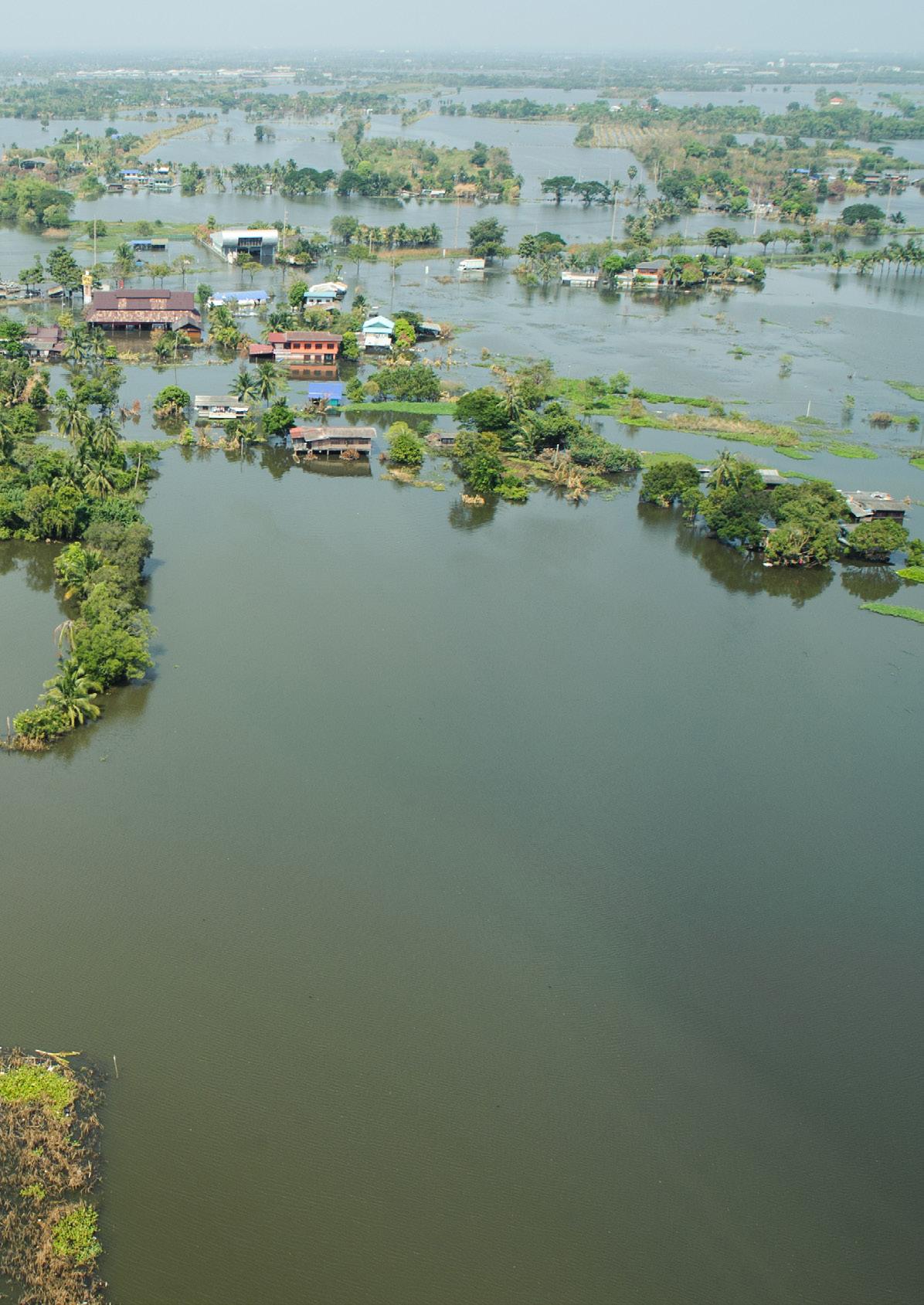
3 minute read
CONCLUSION
Global environmental change is one of the mega challenges of our times. Central banks and regulators have recognized the need to address financial risks related to global environmental change through prudential policies and their role in aligning the financial system with the Paris climate targets and other sustainability goals. The financial sector needs to make important contributions to facilitating a just transition to a low-carbon, environmentally sustainable economy.
Climate change and environmental degradation can have substantial impact on vulnerable groups at the base of the economic pyramid. By threatening the livelihoods and assets of vulnerable groups, climate change and environmental degradation can worsen social equity and contribute to intra-society conflicts and tensions. Social inequity and exclusion from economic opportunities not only limit the capacity of vulnerable groups and MSMEs to protect themselves from the effects of environmental change and boost their resilience, it also limits the scope for effective mitigation strategies. IGF, although not a panacea, can play an important role in supporting vulnerable groups to adapt to global environmental change and strengthen their resilience. Likewise, IGF can facilitate mitigation action of vulnerable groups while supporting their economic opportunities. Without empowering households at the base of the pyramid and enhancing the business opportunities of MSMEs, a just transition to a low-carbon, environmentally sustainable economy will be impossible to achieve.
Advertisement
Importantly, both environmental and social risks can constitute a material risks to financial stability. The physical impacts of (unmitigated) climate change, as well as disruptions caused by a disorderly transition, pose material risks to financial stability. Equally, worsening social inequity and frictions may erode the customer base of financial institutions and affect the repayment of loans, or lead to a disorderly transition. Hence, it is imperative that central banks and regulators address both environmental and social risks to the stability and functioning of the financial system, through prudential policy and by supporting IGF.
Going forward, central banks and regulators need to mainstream sustainability considerations in their monetary and prudential frameworks, addressing both environmental and social factors. Building on the various existing examples for IGF policies, they need to consider how market-shaping policies, as well as direct interventions can best help promote IGF. Pilot programmes can be launched to test the efficacy of IGF policies before these are scaled up.
When developing IGF policies, a gender-sensitive and intersectional lens is crucial. Financial exclusion is more prevalent among women, minorities, rural and low-income households. IGF policies should take the specific needs of these groups into account to ensure that measures are targeted and effective. To this end, it is important to identify the IGF services that can contribute the most in strengthening the resilience of people at the base of the economic pyramid. While the resilience-enhancing functions of traditional financial services should not be underestimated, digital finance holds a particular promise for providing targeted financial services at low cost to the base of the economic pyramid. It is, however, important that consumer protection is safeguarded and those without access to internet services are not forgotten. To advance IGF policy development there is a need for definitions of which products and services are considered green. This will assist in further policy development, as well as essential data collection related to IGF progress and impact. Another important consideration is collaboration and coordination across different national level actors and institutions with regards to IGF policy development.

IGF is one part of a much larger effort to advance mitigation and adaptation to climate change and environmental degradation and should not be designed or implemented in isolation.
The financial sector ought to play a key role in facilitating a just transition by empowering communities and enabling investments in new opportunities for those affected by environmental change. IGF is not a silver bullet, but it can make an important contribution to making societies and economies not only fairer but also more resilient.





